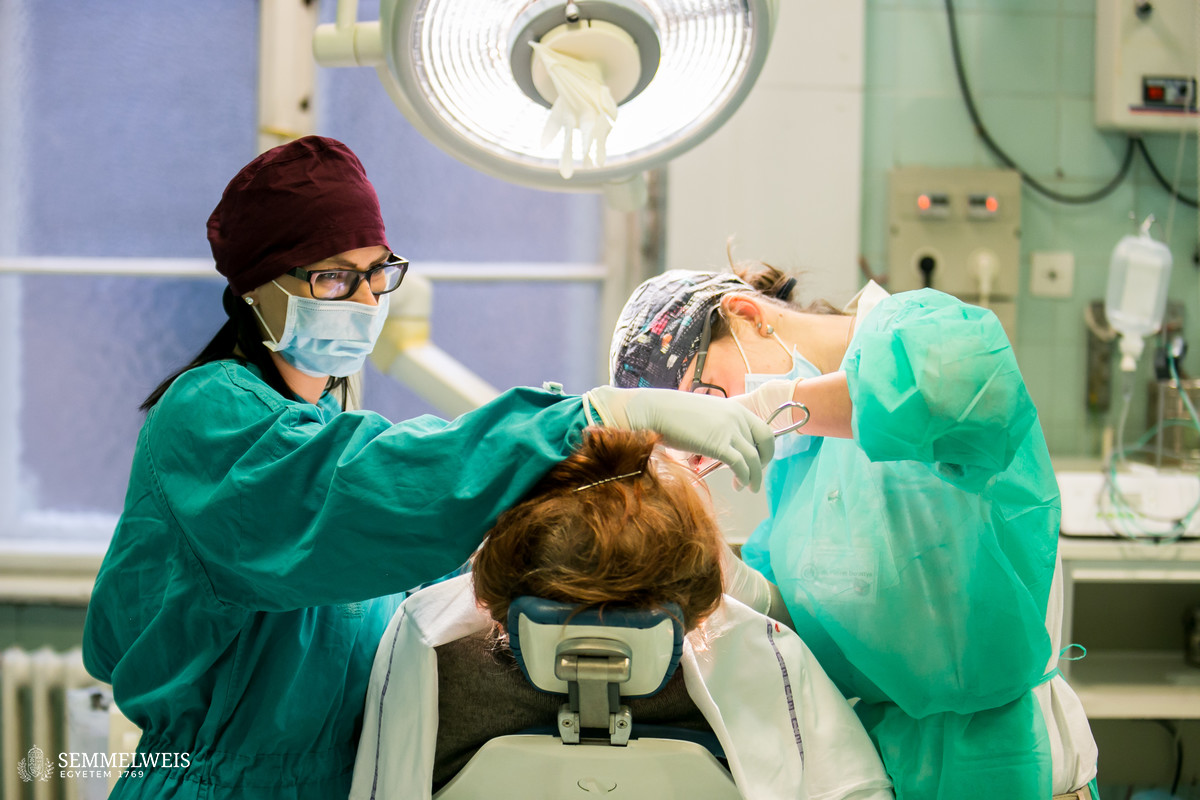Severe periodontitis, which leads to the loss of a high number of teeth, affects around 40 percent of the population worldwide. When including milder cases, eight out of ten adults in Hungary suffer from some level of gum or periodontal disease, which is in line with international figures.
This chronic inflammatory process, which is a widespread disease that develops over many years or decades, affects the gums, the bone, and connective tissues that hold the teeth in place, and therefore has a serious impact on the health of the oral cavity. It initially causes bleeding gums and unpleasant breath. In advanced stages, it can lead to loosening of the teeth and later even loss of teeth, as the untreated inflammation can affect the deeper tissues. Periodontal disease may also increase the severity of diabetes or even cardiovascular disease, and it may be associated with a higher incidence of premature birth and low birth weight.
Menopausal women are more at risk of periodontal disease than men or women under 45 because of hormonal changes during menopause.
Declining estrogen levels during menopause affect, among other things, the metabolism of the jawbone, accelerating bone breakdown in the event of bacterial infection, and slowing down the formation of new bone tissue.
 The assistant lecturer at the Department of Periodontology at Semmelweis University adds: Osteoporosis due to hormonal changes can also accelerate the progression of periodontal diseases.
The assistant lecturer at the Department of Periodontology at Semmelweis University adds: Osteoporosis due to hormonal changes can also accelerate the progression of periodontal diseases.
Communication between attending physicians is essential before starting osteoporosis treatment in cases where both conditions are present, as bisphosphonate drugs may slow the breakdown of bone but also reduce its regenerative capacity. This can even lead to serious complications in some dental procedures, including tooth extraction, oral surgery, or periodontal surgery.
Be sure to inform your dentist in advance if you are taking bisphosphonate or other bone metabolism-slowing (antiresorptive) medicines to treat osteoporosis, which are usually taken orally once a week or intravenously every few months.
Dr. Andrea Dobos stresses that periodontal disease can be most effectively prevented by establishing and maintaining proper oral hygiene at home and by regular ultrasonic scaling at the dentist. In addition to using toothbrushes and toothpaste, flossing and interdental brushing are also recommended. Regular dental check-ups and targeted periodontal surgical treatments following timely diagnosis can help to maintain healthy teeth and periodontium, even during menopause. A healthy diet and adequate intake of vitamin D support bone health.
Eszter Csatári-Földváry
Translation: Judit Szabados-Dőtsch
Photo by Boglárka Zellei – Semmelweis University; illustration: Attila Kovács – Semmelweis University



